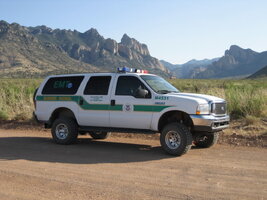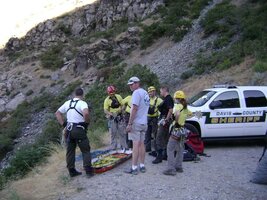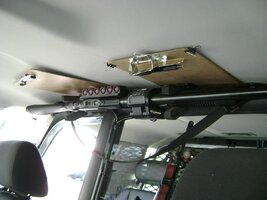Stendec said:This where is should paste my "do one thing and do it really well" pitch. I want medics who are great at medic stuff, and cops who are great at cop stuff. It isn't like there is much skill overlap in both professions.
I understand that resources are spread thin in remote areas, but those two hats don't fit all that well together.
But even after saying that, i think the Border Patrol's BORSTaR program is really cool, from a public service standpoint. But that's still a limited fraction of their manpower.
I'll take that as a compliment since I'm a paramedic in the Border Patrol's EMS program. We have close to 1000 agents who are trained EMT-B or higher, but less than 100 of us are paramedics. The cost/return dividend isn't there for the time and expense of training medics (especially with an expanded scope of practice for the basics). A lot of the calls are environmental related, remote area trauma and an increasing number of ballistic and blast trauma (GSW, IED). To keep the other ALS skills up, most of the paramedics will do hospital clinicals and ride alongs with EMS agencies.
A couple of the paramedic programs the BP uses are also used by Air Force Pararescue (PJs). We've done some joint p-school classes with them (our agents in with their PJ candidates). Since some of our operations are OCONUS (we've had a CBP joint mobile training team in Iraq as well as special operations units with medics attached), most of the medics get 'extra' training in skills like minor surgery, suturing, public health, etc.



